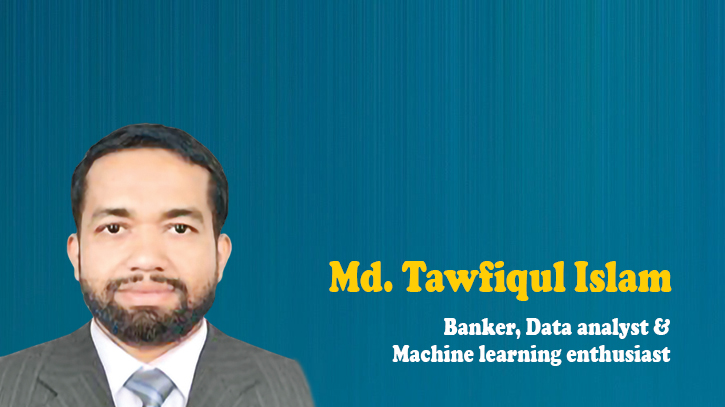
Md. Tawfiqul Islam. Photo : Messenger
Participatory management, also known as employee involvement or employee empowerment, is a management approach that involves employees in the decision-making process and encourages their active participation in shaping the organisation's goals, strategies, and operations. This management style can have a significant impact on organisations all over the world.
In today's rapidly evolving business landscape, organisations are increasingly recognising the power of participatory management in fostering employee engagement, innovation, and organisational success. The banking industry, a sector that thrives on trust, customer focus, and adaptability, can benefit immensely from embracing this management approach.
Participatory management empowers employees by involving them in decision-making processes and shifting power away from traditional hierarchical structures. This article explores the power of participatory management and its profound impact on the banking industry.
Empowering Employees, Splitting the Engagement
Participatory management places power in the hands of employees, giving them a voice and influence in decision-making. By actively involving employees at all levels, banks can tap into their knowledge, expertise, and unique perspectives. This empowerment leads to increased employee engagement, as individuals feel a sense of ownership and responsibility for their work. Engaged employees are more motivated, committed, and willing to go the extra mile to ensure customer satisfaction. In the banking industry, where personalised customer experiences are crucial, engaged employees become valuable assets, driving exceptional service delivery.
Encourage Innovation and Problem-Solving
The participatory management approach creates an environment conducive to innovation and creative problem-solving. By involving employees in decision-making processes, banks gain access to a diverse range of ideas and insights. Employees on the front lines of customer interaction can offer valuable feedback, identify pain points, and propose innovative solutions. This collective intelligence leads to the development of new products, services, and operational improvements that meet the changing needs of customers. Innovative banking solutions not only improve customer experiences but also position banks as industry leaders in a highly competitive market.
Increased efficiency and adaptability
Involving employees in decision-making processes can lead to a more agile and responsive banking industry. Employees who are actively engaged and empowered are more likely to identify and address operational inefficiencies or bottlenecks. They can contribute ideas for process improvements and suggest changes that can enhance overall efficiency, agility, and adaptability in the face of industry trends and customer demands.
Customer-Prime Focus
Participatory management helps banks cultivate a customer-centric culture. When employees have a voice in decision-making, they become more attuned to customer needs and preferences. Frontline employees possess invaluable knowledge about customer expectations, pain points, and emerging trends. By involving these employees in decision-making, banks gain insights that inform strategic choices and enable the development of tailored products and services. A customer-centric approach enhances customer satisfaction, builds long-term customer relationships, and differentiates banks from their competitors.
Agility and Resiliency
In an era of rapid technological advancements and changing customer demands, the banking industry must be agile and adaptable. Participatory management facilitates organizational agility by enabling quick decision-making and response to market changes. With employees actively contributing their insights, banks can swiftly identify emerging trends, assess risks, and seize opportunities. This agility helps banks stay ahead in a dynamic environment, enhancing competitiveness and ensuring long-term viability.
Strengthening Organisational Culture
Participatory management nurtures a culture of collaboration, trust, and transparency within banks. By involving employees in decision-making, banks demonstrate that they value their employees' perspectives and contributions. This fosters a positive work environment characterised by open communication, mutual respect, and teamwork. Such a culture attracts and retains top talent, enhances employee satisfaction and well-being, and promotes innovation and knowledge sharing. A strong organisational culture creates a cohesive workforce that is committed to achieving the bank's goals and serving its customers.
Risk Management and Compliance
The banking industry operates in a highly regulated environment with inherent risks. Participatory management enhances risk management and compliance by involving employees in decision-making processes. Employees possess firsthand knowledge of operational risks and compliance challenges. By giving them a voice, banks can tap into this expertise and collectively identify, evaluate, and mitigate risks. This distributed approach to risk management strengthens the overall stability and resilience of banks, ensuring regulatory compliance and protecting the interests of customers and stakeholders.
Promote Social responsibility
Participatory management can promote a stronger sense of social responsibility within the banking industry. When employees are involved in decision-making, they can advocate for ethical practices, sustainability initiatives, and community involvement. Banks that engage in participatory management are more likely to consider social and environmental factors in their decision-making, leading to a positive impact on society and contributing to sustainable development goals.
Enhance Economic growth and stability
A participatory management approach can enhance the overall efficiency and effectiveness of the banking industry. By involving employees in identifying and addressing operational inefficiencies, banks can streamline processes, reduce costs, and improve financial performance. A more efficient banking sector can contribute to economic growth and stability, benefiting society at large.
Collaboration and social cohesion
Participatory management promotes collaboration, teamwork, and mutual respect among employees. This collaborative culture can extend beyond the organization and contribute to social cohesion within society. Banks that embrace participatory management can serve as role models, fostering collaboration and cooperation among various stakeholders, including government, businesses, and community organizations.
Participatory management is a powerful tool that can transform the banking industry by empowering employees and driving organisational success. By sharing decision-making power, banks foster employee engagement, innovation, and customer-centricity. This approach enhances agility, adaptability, and risk management, ensuring long-term viability in a rapidly evolving landscape. Moreover, participatory management strengthens organisational culture – thereby attracting top talent and fostering collaboration. As the banking industry continues to evolve, embracing participatory management is not just a choice, but a strategic imperative for banks aiming to thrive in the future.
The writer is banker, data analyst and machine learning enthusiast
Messenger/Disha








